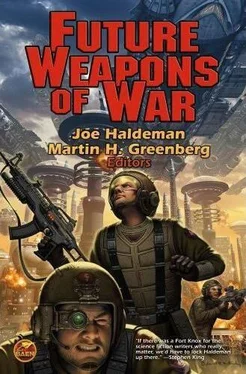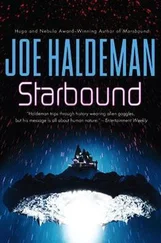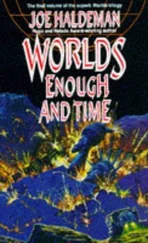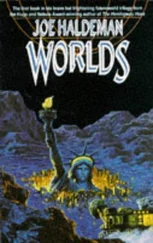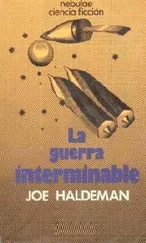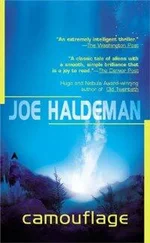“Like it always does,” she snaps. “They put the chips in at the hospital. On the day she was born.”
* * * *
The job is strange. It cannot be work because you cannot leave at the end of the day. It becomes part of you and you become part of it. That’s why you and your colleagues label it a calling, put it on par with other religions, other callings that deal with ethics.
You sit across from murderers and ask, what made you decide to kill? as if that’s a valid question. You sit across from mass murderers and ask, what is it about your political philosophy that makes your methods so attractive to others? as if you care about the answer.
You think: we need to know, as if knowing’s enough to make the problem go away. As if you did the right thing when you were granted the only meeting ever with some charismatic leader—this generation’s Vlad the Impaler or Hitler or Osama Bin Laden—and interviewed him as if he were a reasonable person. As if you did the right thing when you failed to grab a guards old fashioned pistol, and blow the charismatic leader away.
Later you discuss ethics as if they are an important concept.
You say: your job prevents you from judging other people.
You say: other reporters could not get interviews if we take such lethal sides.
You do not say: I lacked the courage to die for my beliefs.
And that is the bottom line. Behind the talk of ethics and jobs and callings lies a simple truth.
You can look. You can see.
But you cannot feel.
If you feel, you will see that your calling is simply a job, a dirty often disgusting one at that, and you realize there were times when you should have acted. When you could have saved one life or a dozen or maybe even a hundred, but you chose not to.
You chose not to—you say—for the greater good.
* * * *
7:15 PM Upload:
Suicide Squadron Part 3
by Martha Trumante
Investigations always seem to hinge on luck. The Paris investigations are no different.
Three months into sorting the Louvre wreckage, the authorities find a chip, its information largely undamaged. Curiously, its technology was five years old, a detail that stumped the investigators more than anything else.
But not General Pedersen.
“ I was watching the news that day,” she says. “I don’t know why. It’s not something I normally do. I usually scan the relevant feeds. But that day, I was watching, and it hit me. I had seen the bomb come into the museum. I’d seen him laugh and rock back and forth and smile in anticipation. I’d thought he was looking forward to his day when really, he was looking forward to his death.”
At first, other security experts would not listen to Pedersen. In a world where suicide bombers had become commonplace—when child suicide bombers packed with explosives were part of the norm—no one could believe that a child could have had a chip implanted years before with enough high density explosives to destroy an entire building.
People could not plan ahead that far, the common wisdom went. People could not be that cruel.
But they were. That was the new truth — or maybe it was an old truth.
They were.
* * * *
She shows me the documents the hospital had her sign. She shows me the diagrams, the little marking some doctor made on a chart of a newborn baby, showing where the chips would be—“chips that will enable her to live in the modern world,” the doctors told her.
She shows me computer downloads, bank accounts her husband set up in her daughter’s name, the college enrollment forms—required for a wealthy child of age four to get into some of Cairo’s best private schools—the plans she and her husband had for her daughters future, her son’s future, their future.
The authorities, she tells me, believe her husband created all these accounts and family documents to protect her, to prove that she and her son had nothing to do with the family’s patriotic explosion.
Only he is not political, she tells me. He never was, and no one believes her.
They believe her enough to send her here instead of killing her as so many other families have been killed in the past. They don’t even try or imprison her. They just disown her, her and her son, make them people without a country, refugees in a world filled with refugees.
She can afford this tent on this sandy piece of land. She pays for the space closest to the medical tent. She hoped that someone would befriend her, that the medical personnel—the aide workers—would help her and her unjustly accused son.
Instead, they shun her like everyone else does. They shun her for failing to protect her daughter.
They shun her for failing to participate in her husband’s crime. They shun her for being naive, for forcing the so-called patriots to ignore her husband and daughter s martyrdom, for failing to die with her family.
They shun her because they cannot understand her.
Or because they do not want to.
* * * *
8:15 PM Upload:
Suicide Squadron Part 4
by Martha Trumante
Experts spend their entire career studying this new bombing phenomenon. Some experts who specialized in suicide bombing have moved to this new area of research.
One, Miguel Franq, wanted to know how three families decided to murder their five-year-olds in well-known Paris landmarks on the same day. Initially, he believed he would find a link that would lead him to a terror cell.
When he did not find the link, he worked with some of the scientists to see if the bomb-chips were set to activate on a certain day, then detonate when they were hit with X-rays, laser beams, or sonar equipment — all three being the main items used in security scans.
The intact chip revealed nothing like that. Only a detonator that was set to go off at a particular time on a particular day.
After much research, many hours of survivor interviews, and that inevitable lucky break, Franq found the link. Someone had given the families free tickets to each site. That all three children did not end up at the same tourist attraction is another matter of luck, although what kind of luck no one can say.
Would it have been better to lose more of the Louvre? Or the Eiffel Tower? Or Notre Dame?
Would it have been better to lose one monument instead of damage three? Would more lives have been saved? Lost? Would more people have noticed? Or would less?
* * * *
I speak to all the parents in this part of the enclave. All of them survivors—some male, some female—of a once-intact family. All of them claiming to be non-political, claiming they did not know—nor did their spouse—that their child was programmed to die.
I ask for proof. They give me similar documents. They give me bank accounts. But, tellingly—at least to me—the names of the hospitals vary, the names of the doctors vary.
“It is the nursing staff,” one man says to me.
“It is an outpatient procedure,” says another woman.
“Anyone could do it,” says a second man. “Even you.”
* * * *
The rules of journalism have tightened in the past forty years. The scandals of fifty years ago, the tales of made-up sources, or badly researched material or political bias—true or not—nearly destroyed the profession.
When you were hired, you were reminded of those past scandals, told that any story with less than three verifiable sources (sources that have proof of their claims, sources that can be reinterviewed by the fact-checker—no listening to vids [which can be manipulated], no scanning of notes), any story with less than three will not be run. Any such stories appearing in blogs or personal writings will be considered the same as a published or viewed news piece.
Читать дальше
